Find The Best Tankless Water Heater Installers With Plumbyng.co.uk
Enjoy Endless Hot Water On Demand
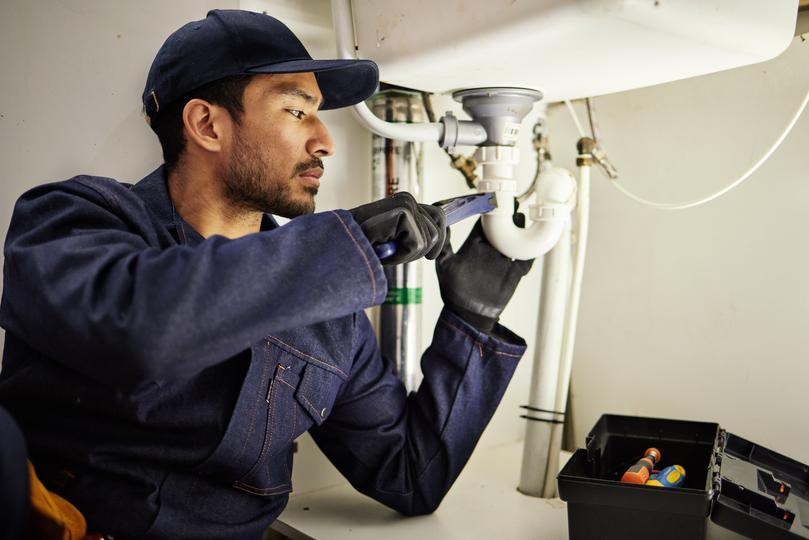
Need a Different Plumbing Service?
Local Plumbers
Find trusted plumbers near you. Get multiple quotes for plumbing repair, installation, and maintenance services.
Emergency Plumbers
Get fast and reliable emergency plumbing services. We respond quickly to leaks, clogs, and other plumbing emergencies.
Commercial Plumbing Contractors
Experienced commercial plumbers for all your business needs. We handle installation, repair, and maintenance for all types of commercial plumbing systems.
Sewer Line Repair
Expert sewer line repair and maintenance services. We handle clogs, leaks, and other sewer line issues to keep your property functioning properly.
Water Heater Repair
Professional water heater repair and maintenance services for all types of water heaters. We diagnose and fix problems quickly and efficiently.
Septic System Installation
Professional septic tank installation services for homes and businesses. We handle all aspects of the installation process, from planning to final inspection.
Full House Repipe
Upgrade your plumbing with our comprehensive whole house repiping services. We replace outdated pipes to improve efficiency, water pressure, and reduce leaks.
Hydro Jetting Service
Clear stubborn clogs and buildup in your drains with our powerful hydro jetting services. We use high-pressure water to effectively clean and restore your plumbi
Finding the Right Tankless Water Heater Installer Is Easy
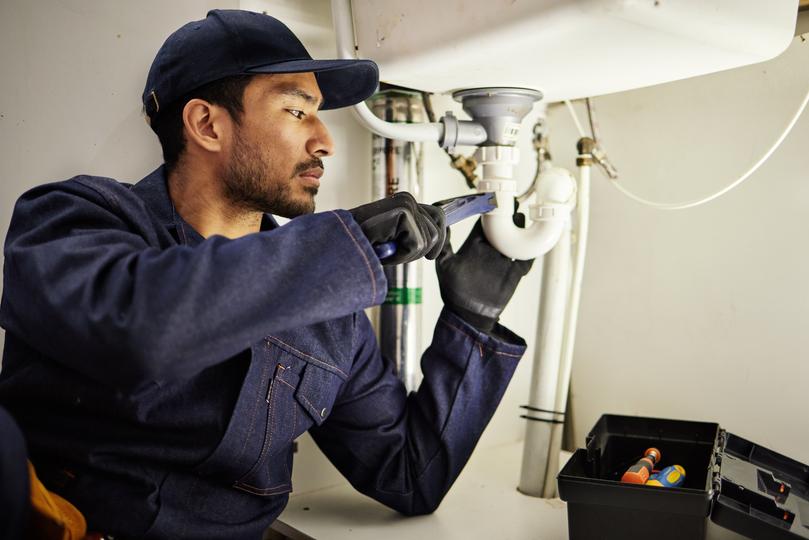
- Tell Us About Your Tankless Water Heater Needs
- Describe your requirements, including the number of bathrooms in your home, your typical hot water usage, and any special requirements.
- We Connect You with Local Professionals
- We'll match you with experienced tankless water heater installers in your area who are licensed, insured, and qualified to handle your project.
- Compare Quotes and Choose the Best Fit
- Review quotes from multiple installers, compare their services, read customer reviews, and choose the installer who best meets your needs and budget.
- Enjoy Endless Hot Water!
- With the right installer chosen, you'll be on your way to enjoying the convenience and efficiency of a tankless water heater in your home.
Why Choose Plumbyng.co.uk for Tankless Water Heater Installation?
The smarter way to find Tankless Water Heater contractors

- Vetted and Licensed Installers
- We rigorously vet all tankless water heater installers listed in our directory. We verify their licenses, insurance, and experience to guarantee you're connecting with competent and trustworthy experts in the field.
- Competitive Quotes and Transparent Pricing
- Get multiple quotes from different installers, allowing you to compare prices and services side-by-side. Our platform ensures transparent pricing, so you know the exact costs upfront, aiding in making informed decisions and staying within your budget.
- Save Time and Effort
- Skip the hassle of searching endlessly for qualified installers. Plumbyng.co.uk does the hard work for you! Simply submit your project details, and we'll connect you with the right professionals in your area.
- Expertise in Tankless Water Heaters
- Our listed installers specialize in tankless water heater installations. They understand the intricacies of different models, brands, and venting requirements, ensuring a professional and efficient installation.
- Comprehensive Service and Support
- Our installers offer comprehensive services, including installation, maintenance, and repair of tankless water heaters. They can guide you through the entire process and address any questions or concerns you might have.
- Free and Easy to Use
- Plumbyng.co.uk is entirely free to use for homeowners and businesses. There are no fees or obligations. Find the best tankless water heater installers today and enjoy the benefits of endless hot water on demand!
Efficient Hot Water for Your Business
Commercial Tankless Water Heater Installation
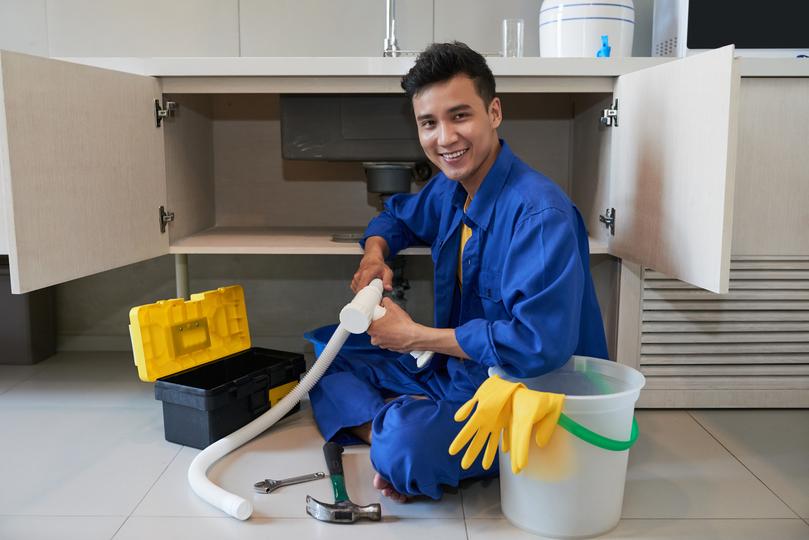
Emergency Plumbers
Find trusted plumbers near you. Get multiple quotes for plumbing repair, installation, and maintenance services.
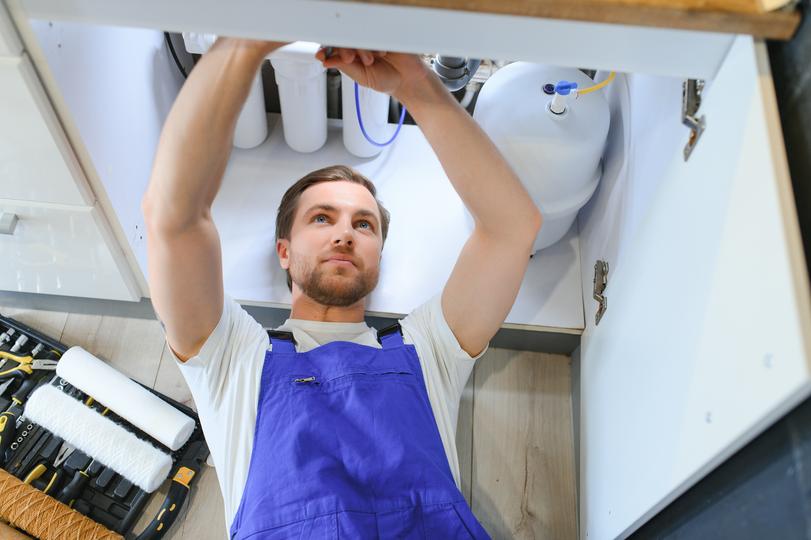
Emergency Plumber
Get fast and reliable emergency plumbing services. We respond quickly to leaks, clogs, and other plumbing emergencies.

Commercial Plumber
Experienced commercial plumbers for all your business needs. We handle installation, repair, and maintenance for all types of commercial plumbing systems.
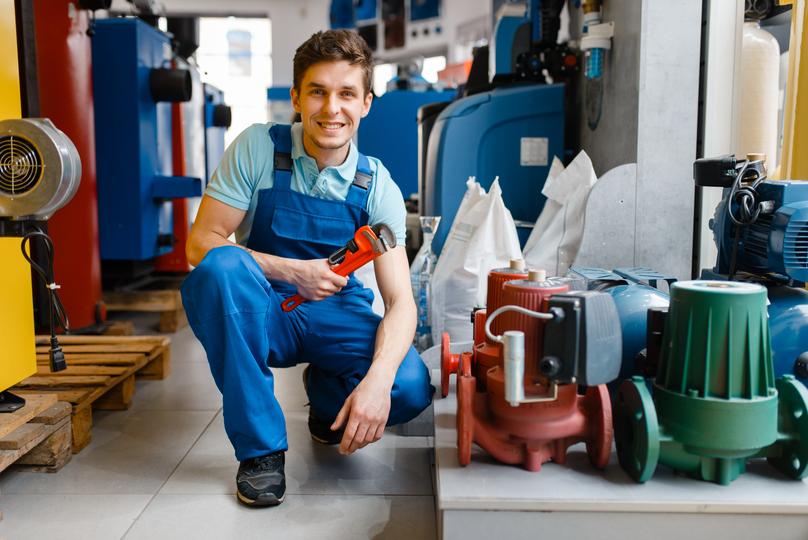
Drain Cleaning Service
Expert sewer line repair and maintenance services. We handle clogs, leaks, and other sewer line issues to keep your property functioning properly.

Install Tankless Water Heater
Upgrade to a tankless water heater for endless hot water and increased energy efficiency. We offer installation and maintenance services.

Water Heater Installation
Professional water heater repair and maintenance services for all types of water heaters. We diagnose and fix problems quickly and efficiently.

Septic System Installation
Professional septic tank installation services for homes and businesses. We handle all aspects of the installation process, from planning to final inspection.
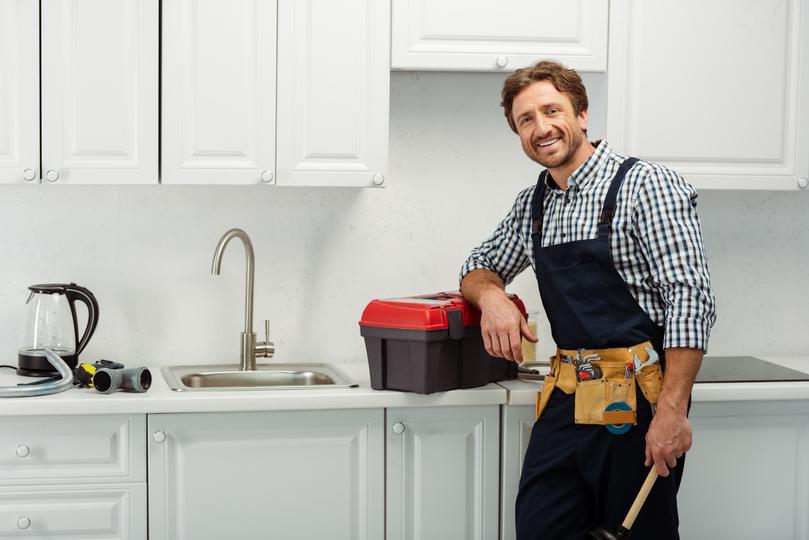
Full House Repiping
Upgrade your plumbing with our comprehensive whole house repiping services. We replace outdated pipes to improve efficiency, water pressure, and reduce leaks.
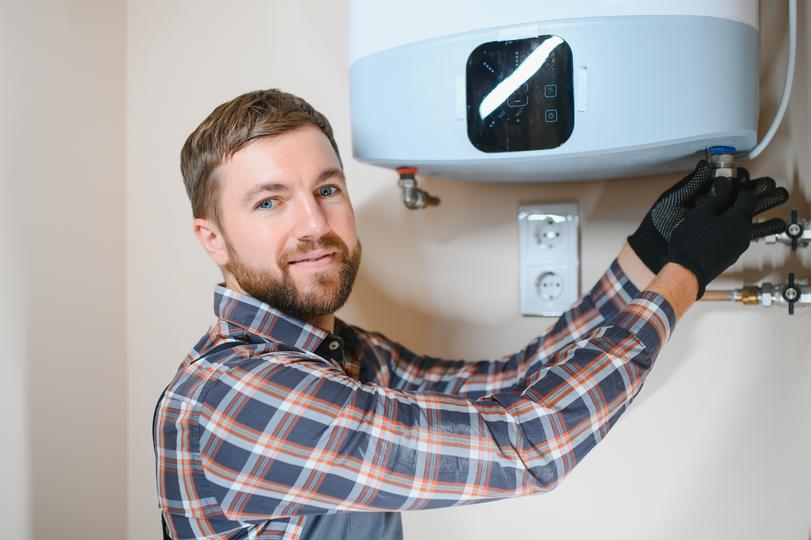
Hydro Jetting Service
Clear stubborn clogs and buildup in your drains with our powerful hydro jetting services. We use high-pressure water to effectively clean and restore your plumbi
Enjoy Endless Hot Water at Home
Residential Tankless Water Heater Installation

Hire a Plumber
Find trusted plumbers near you. Get multiple quotes for plumbing repair, installation, and maintenance services.

Emergency Plumbers
Get fast and reliable emergency plumbing services. We respond quickly to leaks, clogs, and other plumbing emergencies.

Sewer Line Services
Expert sewer line repair and maintenance services. We handle clogs, leaks, and other sewer line issues to keep your property functioning properly.

Tankless Water Heater
Upgrade to a tankless water heater for endless hot water and increased energy efficiency. We offer installation and maintenance services.

Water Heater Maintenance
Professional water heater repair and maintenance services for all types of water heaters. We diagnose and fix problems quickly and efficiently.

Septic System Installation
Professional septic tank installation services for homes and businesses. We handle all aspects of the installation process, from planning to final inspection.

Full House Repipe
Upgrade your plumbing with our comprehensive whole house repiping services. We replace outdated pipes to improve efficiency, water pressure, and reduce leaks.

Hydro Jetting
Clear stubborn clogs and buildup in your drains with our powerful hydro jetting services. We use high-pressure water to effectively clean and restore your plumbi
Ready to Upgrade to a Tankless Water Heater?
Find the Best Tankless Water Heater Installers on Plumbyng.co.uk Today!
Tankless Water Heater Glossary
Tankless Water Heater
On-Demand Water Heater
Gas Tankless Water Heater
Electric Tankless Water Heater
Flow Rate
Temperature Rise
Venting
Condensing Tankless Water Heater
Energy Factor (EF)
Recirculation Pump
Point-of-Use Water Heater
Scale
Hard Water
Water Softener
Descaling
Tankless Water Heater FAQs
How much does a tankless water heater cost?
- Type: Gas tankless water heaters are typically more expensive to purchase than electric models, but they can be cheaper to operate in the long run. Electric models have lower upfront costs.
- Flow rate: The higher the flow rate (gallons per minute), the more the unit will cost.
- Brand and features: Premium brands and advanced features, such as Wi-Fi connectivity or built-in recirculation pumps, will increase the price.
- Installation complexity: The installation process can vary in complexity, influencing the overall cost.
How do tankless water heaters work?
- Cold water enters the unit when you turn on a hot water tap.
- A flow sensor detects the water flow and activates the heating element (gas burner or electric coils).
- The heating element quickly raises the water temperature to the set point.
- Hot water is delivered to the fixture, providing instant and continuous hot water for as long as the tap is on.
How long does a tankless water heater last?
What are the pros and cons of a tankless water heater?
- Endless hot water: Provides an unlimited supply on demand.
- Energy efficiency: Heats water only when needed, reducing energy costs.
- Space savings: Compact and wall-mounted, saving space compared to tank water heaters.
- Long lifespan: Lasts up to twice as long as tank water heaters.
Disadvantages:
- Higher upfront cost: Initial purchase and installation costs are higher.
- Limited flow rate: May not meet high simultaneous hot water demand.
- May require upgraded gas lines or electrical circuits: Ensure your home's infrastructure can handle a tankless unit.
How to choose a tankless water heater?
- Fuel type: Gas or electric, depending on your home's setup and energy preferences.
- Flow rate: Choose a unit with a flow rate that can handle your peak hot water demands.
- Size and capacity: Determine the appropriate size based on the number of bathrooms and your hot water usage.
- Energy efficiency: Look for units with high Energy Factor (EF) ratings to save on energy costs.
- Venting options: Gas tankless units need proper venting.
- Features: Consider additional features such as remote controls, self-cleaning functions, and Wi-Fi connectivity.
Is a tankless water heater worth it?
What is the difference between a tankless and a tank water heater?
- Tank water heaters: Store and heat water in a tank, resulting in standby heat loss.
- Tankless water heaters: Heat water on demand only when needed, avoiding standby heat loss.
How do I choose the right size tankless water heater?
- Your home's climate and incoming water temperature
- Your peak hot water demand (number of simultaneous uses)
- The flow rate of your fixtures (gallons per minute)
How to install a tankless water heater?
What is a gas tankless water heater?
What is an electric tankless water heater?
How to maintain a tankless water heater?
- Flushing the unit: Removing mineral deposits and sediment buildup by flushing with a descaling solution.
- Cleaning air filters (if applicable): Ensuring adequate airflow for combustion.
- Checking venting: Inspecting the venting system for obstructions or leaks.
- Annual inspection: A professional inspection can identify and address minor issues before they become major problems.
How to flush a tankless water heater?
- Disconnecting the unit from the water and power supply.
- Connecting hoses to the cold and hot water ports.
- Circulating a descaling solution through the unit.
- Flushing with clean water to remove the solution.
- Reconnecting the water and power supply.
What are the disadvantages of a tankless water heater?
- Higher upfront cost: Tankless water heaters have higher initial purchase and installation costs than traditional tank water heaters.
- Limited flow rate: They can struggle to provide enough hot water for multiple, simultaneous uses.
- Potential for cold water sandwich: If not equipped with a recirculation system, brief periods of cold water can occur between hot water draws.
- Requires specific venting (for gas models): Gas tankless water heaters need proper venting, which can add complexity and cost to the installation.
What is a recirculating pump?
What are the different brands of tankless water heaters?
What is the warranty on a tankless water heater?
Can I install a tankless water heater myself?
What are the best tankless water heaters?
- Your specific needs (household size, hot water usage, climate)
- Budget
- Energy efficiency goals
How long does a gas water heater last?
Is it cheaper to run a tankless water heater?
Where is the best place to put a tankless water heater?
- Gas or electric: Gas units require proper venting.
- Proximity to fixtures: Ideally, install near frequently used hot water fixtures.
- Accessibility: For maintenance and repairs.
- Space constraints: Tankless units are smaller than tank heaters, but proper clearances are needed.
- Climate: Protect from freezing temperatures.
How noisy are tankless water heaters?
How do I know what size tankless water heater I need?
- Peak demand: The number of fixtures that will be used simultaneously.
- Flow rate: The gallons per minute (GPM) of your fixtures.
- Ground water temperature: Colder climates require more heating power.
How much does a tankless water heater cost?
- Type: Gas tankless water heaters are typically more expensive to purchase than electric models, but they can be cheaper to operate in the long run. Electric models have lower upfront costs.
- Flow rate: The higher the flow rate (gallons per minute), the more the unit will cost.
- Brand and features: Premium brands and advanced features, such as remote controls or self-cleaning functions, will increase the price.
- Installation complexity: The installation process can vary in complexity, influencing the overall cost.
How do tankless water heaters work?
- Cold water enters the unit when you turn on a hot water tap.
- A flow sensor detects the water flow and activates the heating element (gas burner or electric coils).
- The heating element quickly raises the water temperature to the set point.
- Hot water is delivered to the fixture, providing instant and continuous hot water for as long as the tap is on.
How long does a tankless water heater last?
What are the pros and cons of a tankless water heater?
- Endless hot water: Provides an unlimited supply on demand.
- Energy efficiency: Heats water only when needed, reducing energy costs.
- Space savings: Compact and wall-mounted, saving space compared to tank water heaters.
- Long lifespan: Lasts up to twice as long as tank water heaters.
Disadvantages:
- Higher upfront cost: Initial purchase and installation costs are higher.
- Limited flow rate: May not meet high simultaneous hot water demand.
- May require upgraded gas lines or electrical circuits: Ensure your home's infrastructure can handle a tankless unit.
How to choose a tankless water heater?
- Fuel type: Gas or electric, depending on your home's setup and energy preferences.
- Flow rate: Choose a unit with a flow rate that can handle your peak hot water demands.
- Size and capacity: Determine the appropriate size based on the number of bathrooms and your hot water usage.
- Energy efficiency: Look for units with high Energy Factor (EF) ratings to save on energy costs.
- Venting options: Gas tankless units need proper venting.
- Features: Consider additional features such as temperature controls, digital displays, and recirculation pumps.
Is a tankless water heater worth it?
What is the difference between a tankless and a tank water heater?
- Tank water heaters: Store and heat water in a tank, resulting in standby heat loss.
- Tankless water heaters: Heat water on demand only when needed, avoiding standby heat loss.
How do I choose the right size tankless water heater?
- Your home's climate and incoming water temperature
- Your peak hot water demand (number of simultaneous uses)
- The flow rate of your fixtures (gallons per minute)
How to install a tankless water heater?
What is a gas tankless water heater?
What is an electric tankless water heater?
How to maintain a tankless water heater?
- Flushing the unit: Removing mineral deposits and sediment buildup by flushing with a descaling solution.
- Cleaning air filters (if applicable): Ensuring adequate airflow for combustion.
- Checking venting: Inspecting the venting system for obstructions or leaks.
- Annual inspection: A professional inspection can identify and address minor issues before they become major problems.
How to flush a tankless water heater?
- Disconnecting the unit from the water and power supply.
- Connecting hoses to the cold and hot water ports.
- Circulating a descaling solution through the unit.
- Flushing with clean water to remove the solution.
- Reconnecting the water and power supply.
What are the disadvantages of a tankless water heater?
- Higher upfront cost: Tankless water heaters have higher initial purchase and installation costs than traditional tank water heaters.
- Limited flow rate: They can struggle to provide enough hot water for multiple, simultaneous uses.
- Potential for cold water sandwich: If not equipped with a recirculation system, brief periods of cold water can occur between hot water draws.
- Requires specific venting (for gas models): Gas tankless water heaters need proper venting, which can add complexity and cost to the installation.
What is a recirculating pump?
What are the different brands of tankless water heaters?
What is the warranty on a tankless water heater?
Can I install a tankless water heater myself?
What are the best tankless water heaters?
- Your specific needs (household size, hot water usage, climate)
- Budget
- Energy efficiency goals
How long does a gas water heater last?
Is it cheaper to run a tankless water heater?
Where is the best place to put a tankless water heater?
- Gas or electric: Gas units require proper venting.
- Proximity to fixtures: Ideally, install near frequently used hot water fixtures.
- Accessibility: For maintenance and repairs.
- Space constraints: Tankless units are smaller than tank heaters, but proper clearances are needed.
- Climate: Protect from freezing temperatures.
How noisy are tankless water heaters?
How do I know what size tankless water heater I need?
- Peak demand: The number of fixtures that will be used simultaneously.
- Flow rate: The gallons per minute (GPM) of your fixtures.
- Ground water temperature: Colder climates require more heating power.